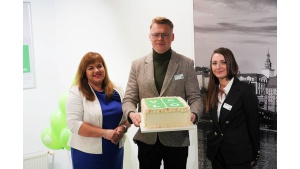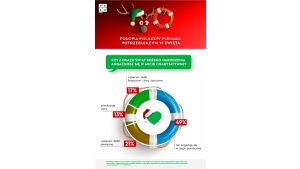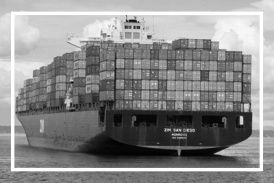UBS: investors plan to use their capital to drive change after COVID-19
- The pandemic has made nearly eight in 10 investors want to reassess their life goals
- Nine in 10 investors want their investments to align with their values
- Nearly two thirds are more interested in sustainable investing as a result
- Women and younger generations are the most motivated to make a difference in the world through charitable giving
With COVID-19 vaccinations accelerating and the economy opening, 90% of wealthy investors agree that the pandemic has made them want to align their investments with their values, according to the new Investor Watch survey by UBS, the world’s leading global wealth manager.
The report, which polled 3,800 investors across 15 markets globally, found investors increasingly want to use their capital to drive change and are looking to find greater purpose in their lives:
- 79% felt that the pandemic made them reassess what is most important
- Nearly half plan to increase their charitable giving
- Almost sixty percent are more interested in investing sustainably than they were before the pandemic.
“The pandemic has prompted many investors to re-evaluate what matters most to them and now have a renewed desire to contribute more to benefit society,” said Tom Naratil, Co-President of UBS Global Wealth Management and President of UBS Americas. “It is incredibly encouraging to see that purpose-driven investment will be a priority for investors in the years to come. This is a unique moment where wealth managers have the opportunity to help their clients create immense change and better outcomes for future generations.”
The survey found that younger generations turned their attention more to purpose-related investing as a result of the pandemic. Seventy-nine percent of investors aged 50 and under noted that the pandemic made them want to make more of a difference in the world, compared to fifty-one percent of investors over 50. Nearly three-quarters of this younger demographic also want to develop or update a comprehensive financial plan.
Iqbal Khan, Co-President of UBS Global Wealth Management, said: “Globally, investors are motivated to play their part in making the world a better, more sustainable place. The heightened interest in charitable giving and desire to obtain sustainable investing advice from younger generations is a sign, too, that this mindset may be here to stay.”
From a gender perspective, more women have seen the pandemic as a time for reflection. Eighty-four percent said that they have reassessed their goals amid the pandemic, compared to seventy-six percent of men. As investors begin to put the pandemic behind them, fifty-one percent of women plan to increase charitable giving compared with forty-two percent of men.
About the UBS Investor Watch Survey
For this edition of UBS Investor Watch, we surveyed 3,800 investors. They were made up of those over 25 years old with at least $1 million in investable assets. The global sample was split across 15 markets: Argentina, Brazil, mainland China, France, Germany, Hong Kong, Italy, Japan, Mexico, Russia, Singapore, Switzerland, the UAE, the UK and the US. The research was conducted in May 2021. Findings were compared to study conducted in May of 2020 among more than 3,750 investors with similar asset levels and age groups.

Grudziądz z placówką VeloBanku. Na mieszkańców czeka atrakcyjny kredyt gotówkowy

Już połowa Polaków pomaga potrzebującym w święta

Klienci VeloBanku z garścią prezentów w bankowości mobilnej i internetowej
Kalendarium
Więcej ważnych informacji
 Jedynka Newserii
Jedynka Newserii

 Jedynka Newserii
Jedynka Newserii

Handel

Ważą się losy wymiany handlowej między Stanami Zjednoczonymi a Unią Europejską. Na wysokich cłach stracą obie strony
Komisja Europejska przedstawiła w poniedziałek propozycję ceł na import z USA o wartości 72 mld euro, co ma być odpowiedzią na nałożenie 30-proc. stawek na import z UE zapowiedziane przez Amerykanów w poprzednim tygodniu. Przedstawiciele KE wciąż widzą jednak potencjał kontynuowania negocjacji. Zdaniem europosła Michała Koboski brak porozumienia lub uzgodnienie stawek wyższych niż 10-proc. nie tylko zaszkodzi obydwu stronom, ale i osłabi ich pozycję na arenie międzynarodowej.
Handel
Nie tylko konsumenci starają się kupować bardziej odpowiedzialne. Część firm już stawia na to mocny nacisk

Kwestie równoważonych zakupów stają się elementem strategii ESG. Dostawy energii, zamówienia surowców i materiałów do produkcji czy elementów wyposażenia biur – na każdym etapie swoich zakupów firmy mogą dziś decydować między opcjami bardziej i mniej zrównoważonymi. Dotyczy to także zamówień rzeczy codziennego użytku dla pracowników czy środków czystości – wskazują eksperci Lyreco, e-sklepu, który prowadzi sprzedaż produktów do biur, pokazując ich wpływ na środowisko czy efektywność pracy.
Prawo
Unia Europejska wzmacnia ochronę najmłodszych. Parlament Europejski chce, by test praw dziecka był nowym standardem w legislacji

Parlament Europejski chciałby tzw. testu praw dziecka dla każdego aktu prawnego wychodzącego z Komisji Europejskiej. – Każda nowa legislacja Unii Europejskiej powinna być sprawdzana pod kątem wpływu na prawa dziecka – zapowiada Ewa Kopacz, wiceprzewodnicząca PE. Jak podkreśla, głos dzieci jest coraz lepiej słyszalny w UE i jej różnych politykach. Same dzieci wskazują na ważne dla siebie kwestie, którymi UE powinna się zajmować. Wśród nich są wyzwania w obszarze cyfrowym i edukacyjnym.
Partner serwisu
Szkolenia

Akademia Newserii
Akademia Newserii to projekt, w ramach którego najlepsi polscy dziennikarze biznesowi, giełdowi oraz lifestylowi, a także szkoleniowcy z wieloletnim doświadczeniem dzielą się swoją wiedzą nt. pracy z mediami.







.gif)

 |
| |
| |
|